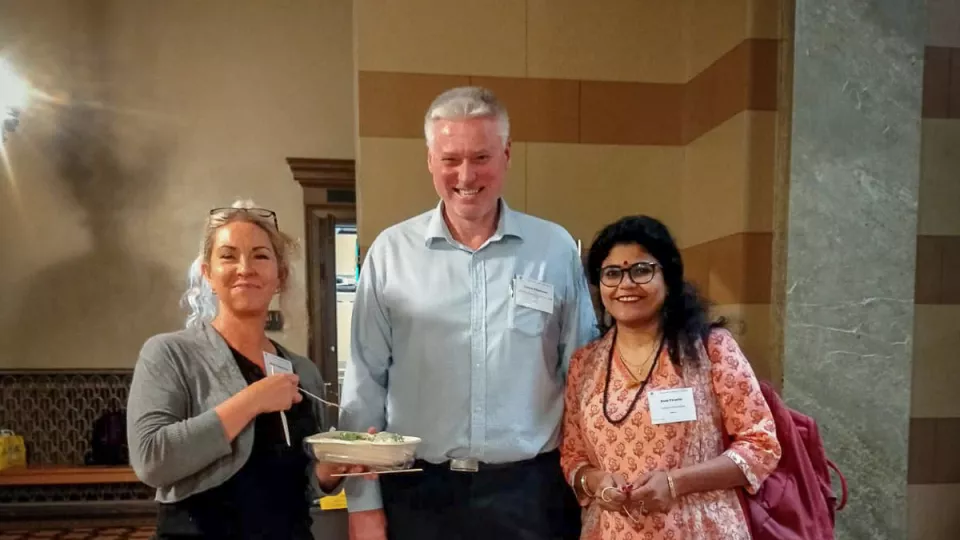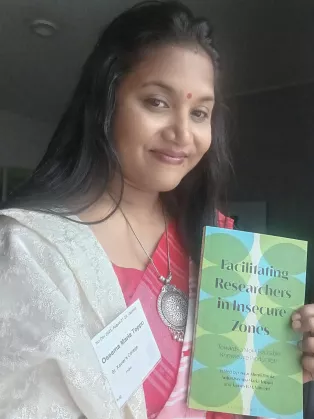The NorDev2023 gathered around 170 participants and covered panel topics related to the co-creation between researchers and other stakeholders such as beneficiaries, decision-makers, and development practitioners, as well as related to different dimensions of, and disciplines within, sustainability.
Present at NorDev was Maria Eriksson Baaz and Fredrik Söderbaum, both programme committee members at the Development Research School. Eriksson Baaz, professor in Political Science, specialising in International Politics at the Department of Government, Uppsala University, organised a panel on “Towards a more equal co-creation of knowledge”. The panel was done in collaboration with Swati Parashar, professor at the School of Global Studies, University of Gothenburg.
The panel addressed the inequalities and colonial heritage inherent in North-South knowledge production:
- We decided to arrange the panel as we, together with Mats Utas, professor in cultural anthropology at Uppsala University, recently facilitated a research project and a book on the topic in which facilitating researchers, often named research assistants, from DR Congo, Sierra Leone and Jharkhand, India account for their experiences of working with contracting researchers from the Global North. One of the editors of the newly released book – Anju Toppo – was part of the panel, presenting her experiences.
The book, Facilitating Researchers in Insecure Zones: Towards a More Equitable Knowledge Production, was published in July 2023 and can be found here (new page).
Maria Eriksson Baaz believes it important to raise the discussions around the inequalities and colonial heritage inherent in North-South knowledge production, as it has been going on for a very long time, without much happening:
- Yet, the increasing attention to the issue in the wake of the calls to decolonize academia, in addition to the Covid pandemic, has opened up a window for change, we believe. For that reason, our panel rather than simply describing the state, tried to move things forward by discussing ways ahead for a more equal co-creation of knowledge. The panelists did this from a range of perspectives. For instance, Bartira Fortes provided us with the example of the decolonizing potential of art in collaborative research with Indigenous people in Brazil.
Fredrik Söderbaum arranged a panel titled “Making international development cooperation work”, which built on the doctoral course held in May for the Development Research School:
- During our panel, we discussed the upcoming difficulties concerning international aid, but also how it best could be structured for future use, says Fredrik Söderbaum.
The full programme from the conference can be found here. (new page)



